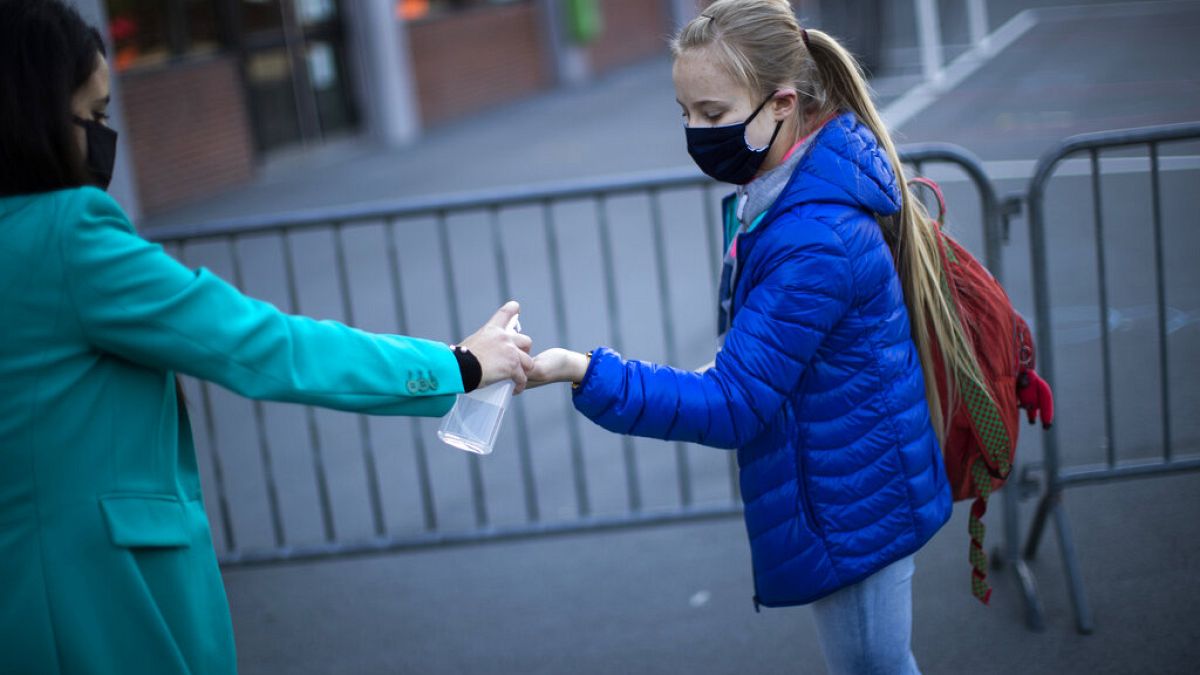Today, Belgium joins Denmark and many others in reopening primary and secondary schools. But, in other countries, rows are raging over getting pupils back into the classroom.
In Denmark, schools are living with the new normal. Pupils from different classes are given a separate entrance, after which they follow a one-way system to and from their classrooms so that they don't brush past others on the stairs and in corridors.
Once inside the classroom, each child has a double desk to themselves, ensuring a two-metre distance from each other.
And just like all of us, they are getting used to washing their hands... a lot.
As for break times, it is up to Denmark’s teachers to become police officers when it comes to maintaining the two-metre rule.
No one would argue the new system is ideal, but it is working.
Today, Belgium joins Denmark and many others in reopening primary and secondary schools - with those strict conditions of course.
But, in other countries, rows are raging about pupils getting back to the classroom; most notably in France and England.
Discussions between unions and government scientific advisers took place in Britain on Friday. However, the meeting was inconclusive and critics of the government’s plan said it raised more questions than answers.
Teachers there, as elsewhere, are concerned that children will catch and help spread the coronavirus; to other pupils, to themselves and ultimately to their family members. They also claim it is all but impossible to keep younger kids at a safe distance from each other.
The UK government has accepted that there are risks. Michael Gove, a cabinet minister - and former Education Minister - said at the weekend: “The only way ever to ensure that you never catch coronavirus is to stay at home completely. There’s always, always, always in any loosening of these restrictions a risk of people catching the coronavirus.”
Though, some argue, schools are on balance quite safe. A paper by the National Centre for Immunisation Research and Surveillance, which focused on COVID-19 cases in schools in New South Wales, states “children are not the primary drivers of COVID-19 spread in schools or in the community”. The group said its findings were in line with other studies that had illustrated a limited spread among children and from children to adults. As with so much in regards to the novel coronavirus, there are increasingly large amounts of data and evidence but, thus far, no conclusive answers.
And not all countries are allowing schools to return. Italy, for example, has said pupils won’t go back to school until September. And even in the UK, Northern Ireland and Scotland are not following England, instead choosing to wait until the summer is over.
But, there are risks and damage done from not reopening schools. Let's look first at the economy. If schools are closed and childcare limited, many parents simply can’t go to work. A 2009 study modelling the effects of closing all schools and formal day-care centres in America for a month put the cost at 0.1-0.3% of GDP. Prolonged closure will not help any recovery.
Closed schools also hit the poorest hardest. It is the most disadvantaged children, the children who do not always have the support they need at home, who are the ones who will fall the furthest behind. It is those children who are less likely to have fast broadband, computers, books and parents who can help. Then there are school meals. For poor children, schools may provide the most nutritious meal they will get on any given day.
There are no easy answers here. Reopening schools is definitely a risk, but it seems to be a balanced risk and one that might (in the long term) prove the least-damaging option.
Darren McCaffrey is Euronews' Political Editor.
If you would like to stay up to date with Euronews' coverage of the coronavirus crisis, please sign up to our newsletter, below.
